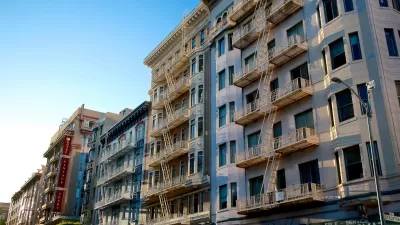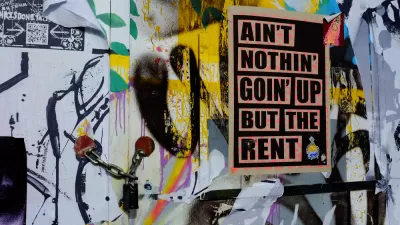The San Francisco Board of Supervisors voted earlier this week to allow property owners to rent “in-law units”—a major policy departure that could add tens of thousands of rental units to the constrained San Francisco real estate market.
Marisa Lagos reports on legislation that could potentially allow an estimated 30,000 to 50,000 existing in-law units to enter the rental market in San Francisco.
Despite the soaring cost of housing in San Francisco, the vote wasn’t without opposition. From the article by Lagos: “On Tuesday, the board voted 8-2 to let property owners voluntarily apply to legalize units built before Jan. 1, 2013. The vote came after more than an hour of debate and several attempts by Supervisor Norman Yee to weaken board President David Chiu's position. At a recent hearing, dozens of homeowners from Yee's district west of Twin Peaks turned out to vehemently oppose any attempts to legalize in-law units.”
The opposition from the west side of the city came from neighborhoods, whose residents have traditionally honored private contracts that detail rental rules for the neighborhood. A provision in the new law states that the city will not interfere with such agreements.
To pass muster for the legal rental market, “[property] owners will be allowed to ask city officials to ‘prescreen’ their units and, if any necessary upgrades are too expensive or difficult, the homeowner could drop his effort to legalize the unit without penalty.”
“To protect renters of the units - many of whom are low-income families and immigrants, according to Chiu - any legalized units would be covered by the city's rent-control ordinance and could not be sold as condominiums. The legislation also bars landlords from passing on to tenants the costs of upgrades to bring the apartments up to code and prevents property owners who have evicted someone in the past 10 years from legalizing their units.”
FULL STORY: S.F. supervisors vote to bring in-law units out of shadows

Alabama: Trump Terminates Settlements for Black Communities Harmed By Raw Sewage
Trump deemed the landmark civil rights agreement “illegal DEI and environmental justice policy.”

Planetizen Federal Action Tracker
A weekly monitor of how Trump’s orders and actions are impacting planners and planning in America.

The 120 Year Old Tiny Home Villages That Sheltered San Francisco’s Earthquake Refugees
More than a century ago, San Francisco mobilized to house thousands of residents displaced by the 1906 earthquake. Could their strategy offer a model for the present?

Housing Vouchers as a Key Piece of Houston’s Housing Strategy
The Houston Housing Authority supports 19,000 households through the housing voucher program.

Rural Population Grew Again in 2024
Americans continued to move to smaller towns and cities, resulting in a fourth straight year of growth in rural areas.

Safe Streets Grants: What to Know
This year’s round of Safe Streets for All grant criteria come with some changes.
Urban Design for Planners 1: Software Tools
This six-course series explores essential urban design concepts using open source software and equips planners with the tools they need to participate fully in the urban design process.
Planning for Universal Design
Learn the tools for implementing Universal Design in planning regulations.
Clanton & Associates, Inc.
Jessamine County Fiscal Court
Institute for Housing and Urban Development Studies (IHS)
City of Grandview
Harvard GSD Executive Education
Toledo-Lucas County Plan Commissions
Salt Lake City
NYU Wagner Graduate School of Public Service





























